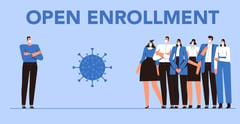3 Great TED Talks in The Era of Consumer-Driven Healthcare (CDHC)
Initial indicators suggest that consumer-directed health plans are indeed succeeding on several fronts; primary care engagement is up, trips to the emergency room are down, health savings account (HSA) balances are rising, and most importantly, health care spending is falling by 5 to 14 percent. But there's a big roadblock to CDHC / CDHP adoption: rampant consumer confusion.
 That was the chief point from Harry Gottlieb, during a keynote address last Wednesday at the Human Resource Executive Health and Benefits Leadership Conference.
That was the chief point from Harry Gottlieb, during a keynote address last Wednesday at the Human Resource Executive Health and Benefits Leadership Conference.
At least two of the pitfalls with Consumer-Driven Health Care (CDHP) and Consumer-Driven Health Plans (CDHP) are the rampant growth in options and the fundamental belief that humans make intuitive, rational decisions. If only that were true!
So what can we do about it? Fortunately, there are a multitude of behavioral studies to help guide our understanding of this phenomenon, as well as lay out a roadmap for us to follow to facilitate better decision making.
Here are what we, as the JP Griffin Group, consider to be three of the most relevant, informative and actionable TED Talks on audience segmentation, behavioral economics and the cognitive limitations of humans when faced with choice.
#1) "Choice, Happiness and Spaghetti Sauce", by Malcolm Gladwell
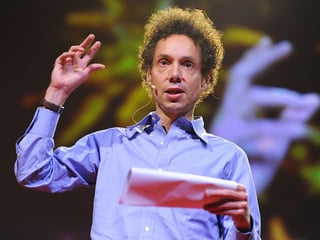 Struggling to find the perfect medical plan and perfectly optimized employee benefits portfolio for your entire work force? This TED Talk makes the case that we are not one homogenous group of consumers, no matter what the category for consideration, be it coffee, soda, healthcare, financial services and even spaghetti sauce. The concept is presented in a highly entertaining fashion by one of the best storytellers of our day, Malcolm Gladwell, author of such best selling books as Outliers, The Tipping Point, Blink and other works that focus on the unpredictable things that people do in the course of their normal lives. Gladwell sets out to explain how a guy by the name of Howard Moskowitz reinvented tomato sauce – a challenge given to him by the Campbell Soup Company when he was asked to create the “perfect” sauce.
Struggling to find the perfect medical plan and perfectly optimized employee benefits portfolio for your entire work force? This TED Talk makes the case that we are not one homogenous group of consumers, no matter what the category for consideration, be it coffee, soda, healthcare, financial services and even spaghetti sauce. The concept is presented in a highly entertaining fashion by one of the best storytellers of our day, Malcolm Gladwell, author of such best selling books as Outliers, The Tipping Point, Blink and other works that focus on the unpredictable things that people do in the course of their normal lives. Gladwell sets out to explain how a guy by the name of Howard Moskowitz reinvented tomato sauce – a challenge given to him by the Campbell Soup Company when he was asked to create the “perfect” sauce.
Masked in all this storytelling is the real lesson (spoiler alert) - there is no such thing as the perfect spaghetti sauce, but rather, the solution lies in a perfect portfolio of spaghetti sauces. This concept is now commonly referred to as “horizontal segmentation”. The bottom line: evolving from a one-size-fits-all approach to one that embraces customer diversity is a wise move. Carefully segmenting your audience and developing a perfect product or service portfolio across each of your individual segments will invariably please the masses far better than looking for one silver bullet solution.
#2) "The Paradox of Choice", by Barry Schwartz
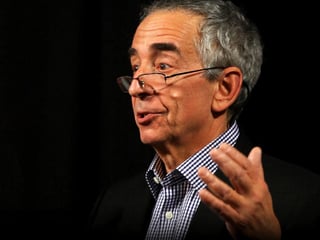 Are you thinking about offering a multitude of medical plans and other employee benefit options to your workforce? Be careful not to introduce too much choice, lest decision paralysis set in. Synthesizing current research in the social sciences, in this TED Talk, Psychologist Barry Schwartz takes aim at a central tenet of western societies: freedom of choice. In Schwartz's estimation, choice has made us not freer but more paralyzed, not happier but more dissatisfied.
Are you thinking about offering a multitude of medical plans and other employee benefit options to your workforce? Be careful not to introduce too much choice, lest decision paralysis set in. Synthesizing current research in the social sciences, in this TED Talk, Psychologist Barry Schwartz takes aim at a central tenet of western societies: freedom of choice. In Schwartz's estimation, choice has made us not freer but more paralyzed, not happier but more dissatisfied.
In accessible, engaging, and anecdotal prose, Schwartz makes the counterintuitive case that eliminating choices can greatly reduce the stress, anxiety, and busyness of our lives. He offers practical steps for how to limit choices to a manageable number, have the discipline to focus on the important ones and ignore the rest, and, ultimately, derive greater satisfaction from the choices you do make. The bottom line: some choice is better than none, but it doesn’t follow than more choice is better then some choice. As Schwartz says, “what that balance is, we don’t know, but we’ve probably passed it a long time ago.”
#3) "Are We In Control of Our Own Decisions?", by Dan Ariely
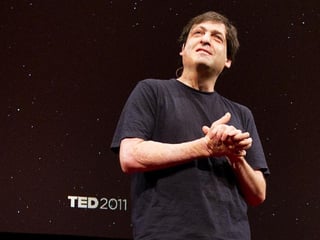 Are you under the impression that the manner in which you present employee benefit options doesn’t have any bearing on how selections will be made? Think again. In this TED Talk, Behavioral Economist Dan Ariely, the author of Predictably Irrational, uses classic visual illusions and his own counterintuitive (and sometimes shocking) research findings to show how we’re not as rational as we think when we make decisions.
Are you under the impression that the manner in which you present employee benefit options doesn’t have any bearing on how selections will be made? Think again. In this TED Talk, Behavioral Economist Dan Ariely, the author of Predictably Irrational, uses classic visual illusions and his own counterintuitive (and sometimes shocking) research findings to show how we’re not as rational as we think when we make decisions.
Through his research and his often amusing and unorthodox experiments, Ariely makes clear that he doesn't buy into the notion of immutable human rationality, upon which economic study is traditionally based. In fact, he says, we are often predictably irrational. We understand our preferences less well than we imagine; and all-too-frequently our decision-making is manipulated by the way in which alternatives are presented.
Ariely goes on to point out how we as humans have been very good at understanding our physical limitations, and have accordingly designed for them. Yet when it comes to our cognitive limitations, we are somewhat oblivious to those and therefore have not appropriately redesigned our decision points, particularly when it comes to topics for which we have no evolutionary reason to do so, such as healthcare, retirement, and the stock market just to name a few.
So do you have a favorite TED Talk which you feel is relevant to the field of employee benefits? If so, please share your thoughts with us.





